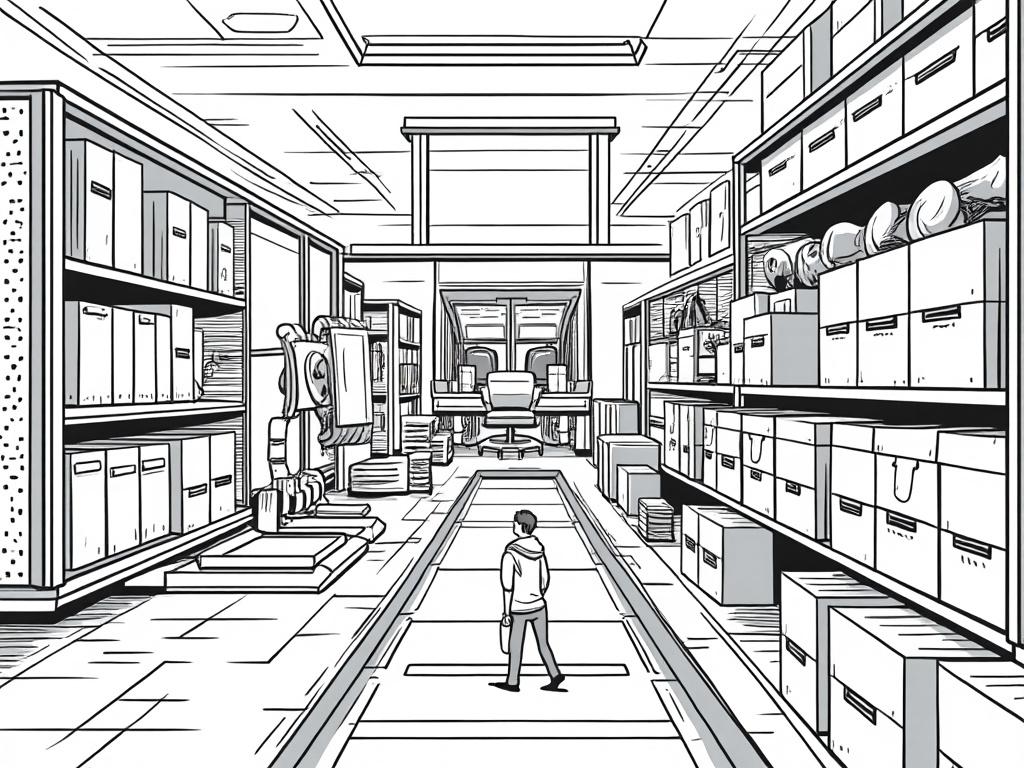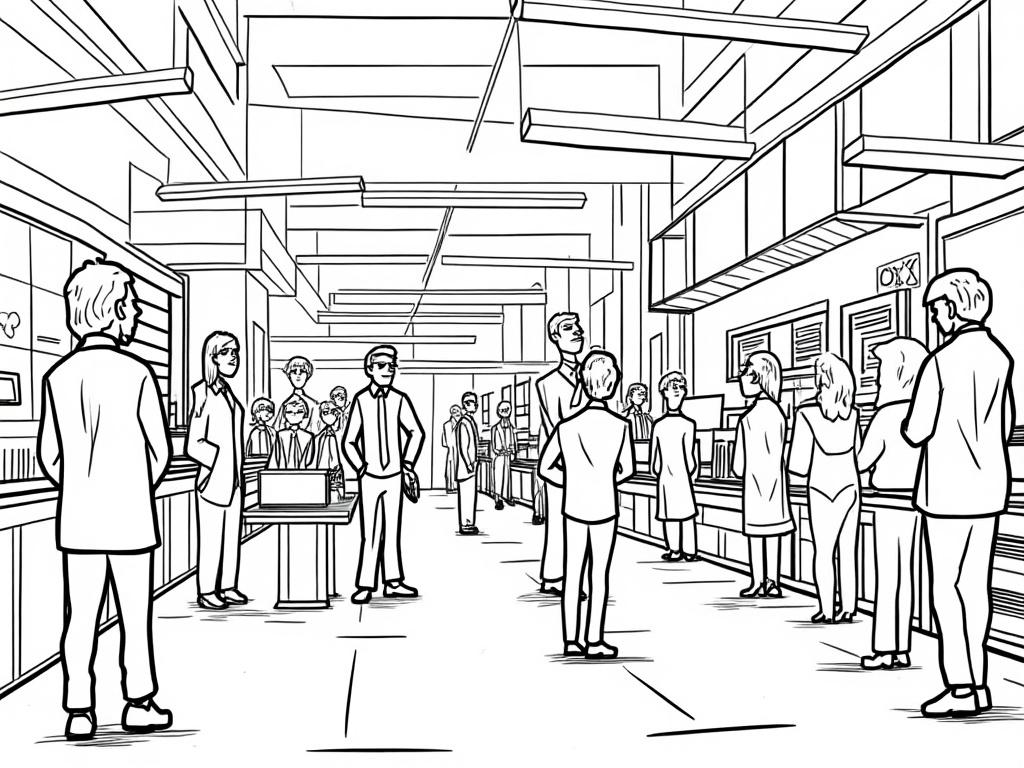
Manufacturing and Industrial Sectors in Greece: Navigating Opportunities in a Resilient Economy
Reading time: 12 minutes
Table of Contents
- Industrial Landscape Overview
- Key Manufacturing Sectors
- Textile and Fashion Manufacturing
- Food Processing and Agribusiness
- Navigating Market Challenges
- Investment Climate and Opportunities
- Manufacturing Renaissance: Your Strategic Gateway
- Frequently Asked Questions
Industrial Landscape Overview
Ever wondered why Greece’s manufacturing sector continues to attract international investors despite economic headwinds? You’re not alone. Let’s unpack the compelling story of Greek industry—a sector that’s quietly transforming from traditional craftsmanship into a modern, competitive manufacturing hub.
Here’s the straight talk: Greece’s industrial sector contributes approximately 12.5% to the national GDP, employing over 350,000 people across diverse manufacturing segments. While these numbers might seem modest compared to industrial giants like Germany, they represent a resilient foundation built on strategic advantages that smart investors are beginning to recognize.
Key Industrial Insights:
- Strategic Mediterranean location for European and Middle Eastern markets
- Competitive labor costs averaging 40% lower than Western European counterparts
- Strong tradition in textile, food processing, and chemical manufacturing
- Growing focus on renewable energy and green technology production
The Greek manufacturing landscape isn’t just about survival—it’s about strategic positioning. With the country’s passport of greece providing EU market access and streamlined business regulations, international manufacturers are discovering compelling opportunities for expansion and cost optimization.
Key Manufacturing Sectors
Quick Scenario: Imagine you’re evaluating manufacturing locations across Southern Europe. What makes Greece stand out? The answer lies in sector-specific advantages that transform operational challenges into competitive opportunities.
Manufacturing Sector Performance Comparison
Greek Manufacturing Sectors by Output Value (2023)
The manufacturing hierarchy reveals fascinating insights. Food processing dominates not just by volume, but by export potential—Greek food products command premium prices in international markets, particularly in organic and Mediterranean specialty segments.
Chemical and Pharmaceutical Manufacturing
Greece’s chemical sector represents one of Europe’s most underestimated manufacturing clusters. Companies like Hellenic Petroleum and Titan Cement have established Greece as a regional hub for petrochemicals and construction materials.
Consider this success story: Lavipharm, a Greek pharmaceutical manufacturer, transformed from a small family business into a major European generic drug producer, leveraging Greece’s strategic location to serve markets from the Balkans to North Africa. Their facility in Peania produces over 200 pharmaceutical products, demonstrating how Greek manufacturers can scale efficiently.
| Manufacturing Metric | Greece | EU Average | Competitive Advantage |
|---|---|---|---|
| Labor Cost (€/hour) | €12.50 | €28.40 | 56% Cost Savings |
| Manufacturing Productivity Growth | +3.2% annually | +1.8% annually | Higher Growth Rate |
| Export Growth (2022-23) | +8.5% | +4.1% | Strong Export Performance |
| Energy Costs (€/MWh) | €95 | €120 | 20% Energy Savings |
| Logistics Access Score | 72/100 | 78/100 | Improving Infrastructure |
Textile and Fashion Manufacturing
Well, here’s the reality check: Greece’s textile industry isn’t just surviving the global competition—it’s thriving by focusing on premium quality and rapid response manufacturing. While mass production has shifted to Asia, Greek manufacturers have carved out a profitable niche in fast fashion and luxury segments.
The Northern Greece Textile Cluster
Drive through Kilkis or Serres, and you’ll discover something remarkable: a textile ecosystem that rivals Italy’s fashion districts. Companies like Benetton Greece and Thessaloniki-based Varvaresos Group have established production facilities that serve major European fashion brands with 15-day turnaround times—a critical advantage in today’s fast-fashion market.
Practical Textile Investment Roadmap:
- Location Selection: Northern Greece offers 30% lower real estate costs than Athens
- Workforce Access: Skilled textile workers with multi-generational experience
- Logistics Optimization: 48-hour delivery to major European fashion capitals
- Compliance Advantage: EU standards with Greek operational flexibility
Success Story: From Local to Global
Take Kappa Greece, which transformed from a small sportswear manufacturer into a major supplier for international athletic brands. By leveraging Greece’s position between European markets and emerging economies, they’ve achieved €150 million annual revenue while maintaining production quality that meets strict European standards.
Food Processing and Agribusiness
Ready to understand why Greece’s food processing sector consistently outperforms broader manufacturing metrics? The answer combines authentic Mediterranean ingredients with modern production capabilities—a combination that’s proving irresistible to international food companies.
The Organic Food Manufacturing Boom
Greece produces more organic food per capita than any other EU country, with organic farmland covering 8.5% of total agricultural area. This creates unique opportunities for food manufacturers who can capitalize on the premium organic market.
Consider Gaea Products, which started as a small olive oil producer and now exports to over 40 countries. Their secret? Combining traditional Greek agricultural practices with modern processing technology, creating products that command 40-60% price premiums in international markets.
Dairy and Cheese Manufacturing Excellence
Greek dairy manufacturers benefit from both protected designation of origin (PDO) products like Feta cheese and growing international demand for Mediterranean diet products. Dodoni and Olympos have established state-of-the-art facilities that process millions of liters of milk annually while maintaining traditional quality standards.
Pro Tip: The combination of EU food safety standards and Greek agricultural traditions creates unmatched credibility in premium food segments—leverage this positioning for maximum market impact.
Navigating Market Challenges
Let’s address the elephant in the room: Greece’s manufacturing sector faces real challenges. But here’s what experienced operators know—these challenges often create barriers to entry that protect established players and create opportunities for strategic investors.
Infrastructure and Logistics Reality Check
Challenge 1: Transportation Infrastructure
Greece’s logistics infrastructure ranks below EU averages, but recent investments are changing the landscape. The expansion of Piraeus Port (now Europe’s 4th largest container port) and improved rail connections to Central Europe have dramatically reduced shipping times and costs.
Strategic Response: Partner with established logistics providers who understand Greek infrastructure nuances. Companies like Goldair Cargo offer integrated solutions that overcome traditional bottlenecks.
Bureaucratic Navigation
Challenge 2: Regulatory Complexity
Greek bureaucracy can feel overwhelming, but recent digitization efforts have streamlined many processes. The key is understanding which procedures can be expedited and which require traditional approaches.
Practical Solution Roadmap:
- Engage local legal counsel familiar with manufacturing permits
- Utilize Greece’s “one-stop-shop” business registration system
- Plan 6-9 months for complete regulatory approval cycles
- Build relationships with regional development agencies for ongoing support
Skilled Labor Availability
Greece’s brain drain during the economic crisis created talent gaps, but it also created opportunities. Many skilled professionals are returning, bringing international experience and maintaining competitive salary expectations.
Smart manufacturers are establishing training partnerships with technical universities in Thessaloniki and Athens, creating pipelines of skilled workers while contributing to local economic development.
Investment Climate and Opportunities
Here’s what the investment data tells us: Foreign direct investment in Greek manufacturing increased by 35% in 2023, with significant inflows from Germany, Italy, and the United States. This isn’t coincidence—it’s recognition of fundamental value propositions that smart money has identified.
Government Incentives and Support Programs
The Greek government offers substantial incentives for manufacturing investments, particularly in technology-intensive sectors and regional development zones. The Development Law 4887/2022 provides tax credits up to 45% of eligible investments, plus additional benefits for green technology and innovation projects.
Investment Incentive Breakdown:
- Tax Credits: 10-45% depending on location and sector
- Accelerated Depreciation: Up to 200% for qualifying equipment
- Social Security Subsidies: 50% reduction for new hires
- EU Funding Access: Additional grants for innovation and sustainability projects
Emerging Opportunities in Green Manufacturing
Greece’s commitment to renewable energy creates unique opportunities for manufacturers of solar panels, wind turbines, and energy storage systems. The government’s target of 35% renewable energy by 2030 drives substantial demand for green technology manufacturing.
Mytilineos Group exemplifies this trend, expanding from traditional metallurgy into renewable energy manufacturing, now producing solar panels and energy storage systems for both domestic and export markets.
Quick Scenario: You’re considering a green technology manufacturing investment. Greece offers not just production advantages, but also a captive domestic market driven by aggressive renewable energy targets—a dual opportunity that reduces market risk while building scale.
Manufacturing Renaissance: Your Strategic Gateway
The convergence of competitive costs, improving infrastructure, and strategic location positions Greece for a manufacturing renaissance. But success won’t come from following yesterday’s playbook—it requires understanding how today’s global manufacturing trends align with Greece’s unique advantages.
Your Strategic Action Plan:
1. Conduct Sector-Specific Due Diligence
Focus on sectors where Greece’s advantages align with your capabilities. Food processing and textiles offer immediate opportunities, while green technology and pharmaceuticals present medium-term potential.
2. Build Local Partnerships Early
Successful manufacturers in Greece invariably partner with local companies, distributors, or service providers who understand regulatory nuances and market dynamics.
3. Leverage Geographic Positioning
Use Greece as your gateway to Balkan, Middle Eastern, and North African markets—regions with growing manufacturing demand but limited local production capacity.
4. Invest in Workforce Development
The most successful Greek manufacturers invest heavily in training and development, creating competitive advantages through skilled labor while building community support.
5. Plan for Scalability
Start with pilot projects that can expand rapidly as you understand local markets and operational dynamics.
The manufacturing landscape is shifting toward regional resilience and supply chain diversification. Greece’s position at the crossroads of Europe, Asia, and Africa, combined with improving business conditions and competitive costs, creates a window of opportunity that forward-thinking manufacturers are already exploiting.
As global supply chains continue to evolve, are you positioned to capitalize on Greece’s emerging role as a strategic manufacturing hub, or will you watch competitors establish first-mover advantages in this resilient Mediterranean economy?
Frequently Asked Questions
What are the main advantages of manufacturing in Greece compared to other European locations?
Greece offers several compelling advantages: labor costs that are 40-50% lower than Western European averages, strategic location for accessing European, Middle Eastern, and North African markets, strong governmental investment incentives including tax credits up to 45%, and access to skilled workforce with competitive wage expectations. The country’s EU membership provides regulatory stability and market access while maintaining operational flexibility that larger EU economies often lack.
How long does it typically take to establish a manufacturing operation in Greece?
The timeline varies by sector and complexity, but most manufacturing operations can be established within 6-12 months. This includes 2-3 months for initial business registration and permits, 3-6 months for facility setup and equipment installation, and 1-3 months for workforce recruitment and training. Complex operations requiring specialized permits (chemicals, pharmaceuticals) may require 12-18 months. Utilizing Greece’s streamlined “one-stop-shop” registration system and working with experienced local partners can significantly accelerate the process.
What sectors offer the best opportunities for international manufacturers entering Greece?
Four sectors stand out for international manufacturers: Food processing benefits from Greece’s agricultural strengths and growing organic market demand; textiles and apparel manufacturing can capitalize on proximity to European fashion markets and rapid response capabilities; green technology manufacturing aligns with Greece’s renewable energy commitments and government incentives; and pharmaceutical/chemical manufacturing leverages competitive costs and strategic export positioning. Each sector offers different risk-reward profiles, with food processing providing the most immediate opportunities and green technology offering the highest long-term growth potential.

Article reviewed by Dominic Rossi, Historic Real Estate Specialist | Renaissance Palaces to Modern ROI, on June 6, 2025
